әртүрлі деңгейдегі басқарушы-маркетологтар, оның ішінде: кәсіпорын басшысы, маркетинг қызметінің директоры, креативті директор, арт-директор, менеджер жарнаманы стратегиялық жоспарлау жөніндегі менеджер, Аffiliate-менеджер; жарнама жөніндегі менеджер, PR менеджер, жарнама агенттігіндегі клиенттермен жұмыс жасаушы менеджер, өнім бойынша маркетолог, маркетолог-сарапшы, геомаркетолог, бренд-маркетолог, трейд-маркетолог, интернет-маркетолог, медиапланер, тренд-вотчер, геомаркетолог.
- кәсіпорындар, әртүрлі меншік нысанындағы және басқару деңгейіндегі ұйымдар мен мекемелер;
- мемлекеттік органдар;
- ғылыми-зерттеу мекемелері.
бизнес-құрылымдар, өнеркәсіптік өндіріс, әртүрлі меншік нысанындағы ұйымдар мен фирмалар, мемлекеттік басқару органдары, қаржы ұйымдары, жобалау және ғылыми-зерттеу институттары, ғылыми-өндірістік, білім беру мекемелері.
- кәсіпорындарда тиімді маркетинг қызметін ұйымдастыру;
- маркетинг кешені бойынша ұтымды шешімдерді әзірлеу және қабылдау;
- маркетингтік зерттеулер жүргізу, нарықты сегменттеу, тауарларды жылжыту;
- маркетингтік стратегияларды, маркетинг бюджетін әзірлеу және іске асыру және тиімді коммуникацияларды пайдалану;
- маркетингтік талдау және бақылау жүргізу;
- тауар ағындарын жоспарлауды, болжауды, басқаруды жетілдіру жөніндегі іс-шараларды әзірлеу, шығындар мен пайданы бақылау;
- кәсіпорындардың маркетингтік қызметін басқару және бақылау;
- тауарлардың кең ассортименті көтерме сауда нүктелерінде жарнама арқылы өнімді жылжыту;
- өткізу стратегиясы мен тактикасын анықтау;
- зерттеулерді ұйымдастыру және олардың нәтижелерін талдау;
- компания үшін маңызды көрсеткіштердің динамикасын болжау.
- оларды жақсарту үшін ұсыныстар әзірлеу.
1. Бағалау:
- экономикалық агенттердің нарықтағы мінез-құлқын, кәсіби қызмет саласындағы объектілердің даму үрдістерін әртүрлі жағынан (өндірістік, мотивациялық, институционалдық және т. б.) сыни бағалай білу;
- кәсіпорын маркетингінің тиімділігін бағалау, маркетингті басқару жүйесі, оның бюджеті, нарықтың мақсатты сегментін таңдау, бәсекеге қабілеттілік деңгейін анықтау дағдыларын меңгеру;
- тиімді маркетингтік стратегиялардың нұсқаларын әзірлеу және бағалай білу.
2. Құрылымдық:
- маркетинг және сауда саласындағы білімдерді, қызметті оңтайландыру іскерліктері мен дағдыларын меңгеру, жаңа идеяларды іске асыру, маркетинг бойынша стандартты емес және баламалы шешімдерді табу, жаңа идеяларды генерациялауға, сыни ойлауға қабілетті болу;
- мәселені қалыптастыра білу, оны шешуге креативті қарау; шығармашылық қабілеттілікті дамыту әдістемелерін меңгеру; жинақталған тәжірибені шығармашылықпен қолдана білу және жаңа әдістемелерді жасай білу;
- шығармашылық міндеттерді шешуге жоғары мотивацияның болуы, бар білімді креативті пайдалану қабілеті, басқару процесінің басқа қатысушыларының шығармашылық қызметін ұйымдастыру.
3. Ақпараттық-технологиялық:
- сауатты және дамыған сөйлеуді меңгеру, ана тілі және шет тілдерін меңгеру, қарым-қатынас технологиясы саласындағы білімді, коммуникация стратегиясын, конструктивті диалогты, көпмәдениетті, көпэтносты және көпконфессиялы қоғамда қарым-қатынас жасай білуді меңгеру;
- аналитикалық және коммуникативтік дағдыларды жүзеге асыру арқылы алынған бастапқы ақпаратты өңдеу, әр түрлі көздерден ақпарат жинауды жүзеге асыруға қабілетті болу;
- кәсіби қызметте ақпараттық технологияларды қолдана білу, қазіргі заманғы аспаптық құралдарды пайдалана отырып бағдарламалау дағдыларын меңгеру;
- корпоративтік этика кодексі, келіссөздер жүргізу техникасы, сондай-ақ бизнес-коммуникация негіздері саласында берік білімінің болуы.
- кәсіби халықаралық қарым-қатынаста мамандандырылған терминология шеңберінде қалыптасқан коммуникация құралы ретінде мемлекеттік, орыс және шет тілдерінің бірін меңгеру;
- маркетингтік ақпаратты алу, сақтау, қайта өңдеу, түсіндіру бойынша ақпараттық өзара әрекеттестіктің негізгі тәсілдерін және құралдарын меңгеру;
- алға қойылған маркетингтік міндеттерді шешу үшін қажетті деректерді жинау, талдау және өңдеуді жүзеге асыру;
- библиографиялық және ақпараттық-іздеу жұмыстарын жүргізу және ол деректерді кәсіби міндеттерді шешуде, ғылыми мақалаларды ресімдеуде, ақпараттық шолулар жүргізуде, аналитикалық есептерде пайдалану;
- ақпараттық қауіпсіздіктің негізгі талаптарын ескере отырып, ақпараттық-коммуникациялық технологияларды қолдану арқылы кәсіби қызметің стандартты міндеттерін шешу;
- отандық және әлемдік азық-түлік нарығындағы орын алған әлеуметтік-экономикалық процестер мен құбылыстарды сипаттайтын көрсеткіштерді талдау және түсіндіру;
- жаңа нарықтық мүмкіндіктер табу және бизнес-идеяны тұжырымдау;
- жаңа бизнес, өнім түрлерін дамытудың бизнес-жоспарларын дайындау қабілетін жетілдіру;
- әлеуметтік-экономикалық тиімділігін тәуекелдер мен ықтимал әлеуметтік-экономикалық өлшемдерді ескере отырып ұсынылып отырған басқару шешімдерінің нұсқаларын сыни бағалау, оларды жетілдіру жөнінде ұсыныстар әзірлеу және негіздеу;
- кәсіпорында тиімді маркетингтік қызметті ұйымдастыру;
- нарықта маркетингтік стратегияларды, өнімді орналастыру карталарын әзірлеу және енгізу, мақсатты нарықты таңдау;
- маркетинг бюджетін дайындау және бақылау;
- тиімді баға, тауар, коммуникация саясаттарын дайындау және енгізу;
- кәсіпорындардың, брендтердің жағымды имиджін қалыптастыру және оларды отандық және халықаралық нарықтарда жылжыту.



